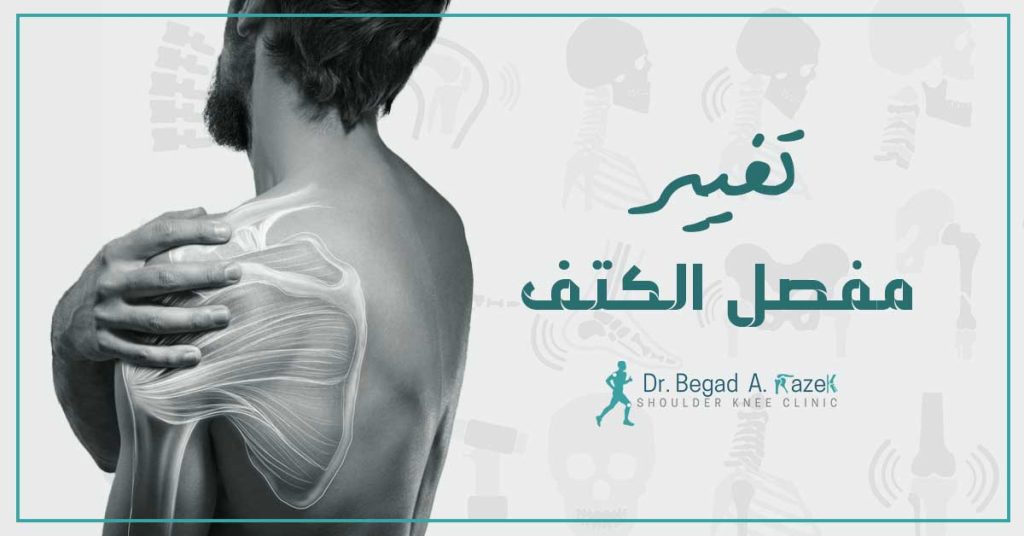
Shoulder joint replacement is a surgical procedure in which the damaged shoulder joint is replaced with an artificial joint. This procedure is usually used in cases of damage to the shoulder joint due to chronic injury or disease such as rheumatoid arthritis. Here is an overview of shoulder replacement surgery:
Initial evaluation:
The surgeon evaluates your condition and diagnoses damage to the shoulder joint.
Radiographic images such as X-rays or MRI may be ordered to evaluate the damage and determine the appropriate surgical plan.
Preparing for the operation:
Before the operation, you will need to undergo various tests and review your health history and current medications.
You should follow your surgeon’s directions about which medications to avoid before surgery.
Surgery:
The operation is performed under general anesthesia, while the patient is asleep and does not feel any pain.
The damaged joint is removed and replaced with an artificial joint.
A metal-plastic artificial joint or a completely artificial joint can be used, depending on the patient’s condition and the surgeon’s recommendation.
Recovery phase:
After surgery, you will need a recovery period that includes a hospital stay of a few days.
You will need physical therapy sessions to enhance shoulder strength and mobility and facilitate healing.
You should follow your surgeon’s instructions regarding limited activity, wound care, and taking prescribed medications.
Shoulder joint replacement must be performed by a qualified surgeon who specializes in joint surgery. You should discuss the details of the procedure and expectations with your surgeon and ask any questions you would like to know answered before agreeing to the procedure.
Cost of replacing the shoulder joint
Shoulder replacement surgery, also known as shoulder arthroplasty, involves replacing the damaged joint in the shoulder with an artificial joint. This procedure is performed for people with chronic shoulder joint problems, such as severe rheumatoid arthritis, cartilage damage, or severe injury.
As for the cost of shoulder joint replacement surgery, the average price is 60,000 Egyptian pounds, but it may vary and depend on several factors, such as:
- Country and City: Costs are different in each country and city. Costs are usually higher in countries with high overall healthcare costs.
- Type of artificial joint: Several types of artificial joints can be used to replace the shoulder joint. The price of each type varies depending on the manufacturer and technology used.
- Duration of hospital stay: Some cases may require a longer stay in the hospital for the necessary post-operative care, which increases costs.
- Anesthesia costs: The price of anesthesia depends on the type of anesthesia used, whether it is general anesthesia or local anesthesia.
- Surgeon and medical team fees: This includes the costs of the surgeon, his assistants, and the healthcare team involved in the operation.
- Costs associated with the rehabilitative stages: After the operation, you may need physical therapy, muscle strengthening, and follow-up recovery sessions, and these sessions may include additional costs.
It is best to consult an orthopedist or joint surgeon to get a cost estimate for shoulder replacement surgery based on your individual condition and treatment requirements. You can also check your health insurance coverage to see if it covers some or part of the costs.

After shoulder joint replacement surgery
After shoulder replacement surgery, you will experience the recovery process and stages necessary to regain normal movement and function of the shoulder. Here is some general information about what to expect after the procedure:
- Hospital stay: Shoulder joint replacement usually requires a hospital stay of several days. You are monitored by a medical team and nurses to ensure your condition stabilizes and you initially recover.
- Pain and swelling: You may feel pain and swelling in the shoulder area after the procedure. Medical teams will provide you with appropriate medications to relieve pain and reduce inflammation.
- Physical Therapy: After the operation, you will need an intensive physical therapy program to regain movement and strength in the shoulder. You will work with a physical therapist on exercises to improve mobility and strengthen the muscles surrounding the shoulder.
- Routine activities: It may take some time to fully regain the ability to perform daily routine activities. The time required to return to work and sporting activities is determined based on the progress of recovery and your doctor’s recommendations.
- Medical follow-up: You will need follow-up sessions with the surgeon to evaluate your recovery and ensure that there are no new complications or problems. These visits can include medical imaging procedures to evaluate results.
It is important to adhere to the instructions of the surgeon and physical therapist and inform them of any problems or changes that occur during the recovery period. Remember that every recovery is different and may require a different time to fully recover.

